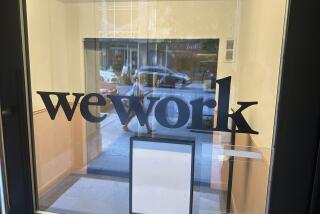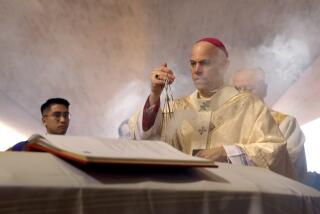Sabres Seek Protection in Chapter 11 Filing
- Share via
The Buffalo Sabres on Monday filed a petition for Chapter 11 in Buffalo Bankruptcy Court, seeking short-term financing that will enable the National Hockey League team to reorganize its debts and streamline a sale to businessmen Todd Berman and Mark Hamister.
The Sabres, who have declined competitively since they lost the 1999 Stanley Cup finals to the Dallas Stars, were the second NHL team in less than a week to seek protection from creditors. The Ottawa Senators filed for protection from creditors Thursday under Canada’s Companies’ Creditors Arrangement Act.
The NHL has been operating the Sabres since June, when owner John Rigas’ Adelphia Cable empire imploded. The Sabres listed debts of more than $200 million, including deferred salaries to about half a dozen players and $750,000 to the city of Buffalo for ground rent at HSBC Arena.
Subject to court approval of the petition, the Sabres will get funds to operate for the rest of the season. However, NHL Commissioner Gary Bettman said a sale to Hamister and Berman remained on track, and that they would infuse cash to run the club.
“I told the employees of the club today that this is actually good news because now everybody who works for the club is sure to be paid for the season,” Bettman said during a conference call from Buffalo. “Our hope and expectation is that the sale process [to Hamister and Berman] will continue.”
Bettman tied the clubs’ woes to rising salaries. The NHL’s labor agreement with its players expires Sept. 15, 2004. Bettman said he has made a proposal to the union, which the union denied.
“This is another indication that we must have a system that is economically stable,” he said. “Some franchises will struggle to get to 2004, and you’re seeing that. Do I believe others are near Chapter 11? No.... Franchises will continue to struggle until we get a system that works.”
Union chief Bob Goodenow attributed the two clubs’ problems to “bad business decisions and personal situations of the clubs’ owners,” adding salaries played no part in their struggles.
More to Read
Go beyond the scoreboard
Get the latest on L.A.'s teams in the daily Sports Report newsletter.
You may occasionally receive promotional content from the Los Angeles Times.







